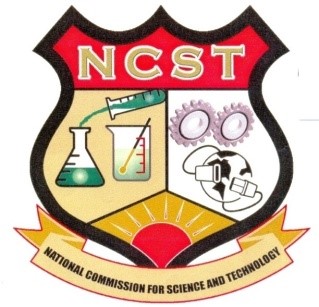
NATIONAL COMMITTEE ON RESEARCH IN THE SOCIAL SCIENCES AND HUMANITIES (NCRSH)
SOP NO.3: Standard Operating Procedure for Protocol Review
Purpose
This SOP describes how NCRSH reviews and assesses the initial protocol submitted for approval of the study through the use of the protocol assessment form which is designed to structure the protocol review process and to facilitate reporting of recommendations and comments to the investigator/applicant.
Scope
This SOP applies to the ethical and scientific assessment of all protocols submitted for review. The specific elements in all the sections of the form must be adequately addressed in the protocol itself and/or in the protocol related documents under review. The usage of this SOP applies to NCRSH members, any reviewer appointed by NCRSH Chairperson and secretariat.
Allowable Exceptions
This SOP is meant to be followed without deviation
Specific Procedure
- Secretariat sends the protocol and the Protocol Assessment Form to the assigned reviewers
- Reviewers submit completed protocol assessment form to NCRSH secretariat within fourteen (14) days in the case of an expedited review (See SOP NO.4 on expedited review).
- In the case of a full committee review at a scheduled quarterly meeting, reviewers shall bring the completed assessment forms to the scheduled meeting.
- Primary reviewer presents the protocol and comments on it at the meeting, followed by the secondary and third reviewer who only present their comments on the protocol.
- NCRSH members discuss the protocol and the comments made by the reviewers
- Members make a decision on the protocol. The consensus is preferred though not always the case. In case of non consensus, a vote would be cast. In case of a tie, the chairperson shall cast a deciding vote. However, the committee shall be mindful of the ethical and legal obligations and principles that numbers shall not always be the deciding factor but together with the quality of the deferring opinion which NCRSH shall always be required to take into consideration in making a decision on a protocol. In this regard, chairperson may seek opinion of the relevant authority in the study area. Such an opinion would be considered in making a decision on a protocol so long as such a given opinion respects (bio)ethical and legal principles and obligations.
- Secretariat shall record the NCRSH decision for feedback to the investigator within seven days after a full committee meeting and/or within seven days after receipt of the assessment form from reviewers in the case of the expedited review process.
Definition of Terms
Protocol Assessment Form: An official record that documents the protocol review against the standard elements and other ethical and regulatory obligations
PROTOCOL ASSESSMENT/REVIEWER FORM
| Name of Reviewer |
|
| Date of Review |
|
|
Title and Reference Number of the Study |
|
| Signature of the Reviewer |
|
Research proposals/protocols shall be assessed against the following elements:
- Conformity with Relevant National Policies and Laws
- g National Requirements, Procedures, Guidelines, Regulations, National Research Agenda etc
2.0 Scientific Validity of the Study
Comment on;
- Study Rationale or Problem Statement
- Title, objectives and design of the study if they are in tandem
- Suitability of proposed methods to address objectives
- Suitability of study population
- Sample size (calculation)
- Data Collection techniques in light of the objectives and design of the study
- Ethical Validity of the Study
Comment on;
- Privacy and Confidentiality issues (in light of the study design and its sensitivity) How will privacy and confidentiality be assured for participants?
- The adequacy of the Informed Consent Form/Information Sheet( Does it include all the required elements?)
- Have all risks, if any, been identified? How will they be managed or avoided all together?
- Benefit (direct or indirect) to participant/institution
- Inclusion and Exclusion Criteria of subjects/participants
- Foreseable or unforseable adverse events if any and how they will be addressed
- Qualifications of the investigator (research team) in light of the proposed study
- Adequacy of the budget to conduct the study
5.0 Decision and Recommendation of the Reviewer